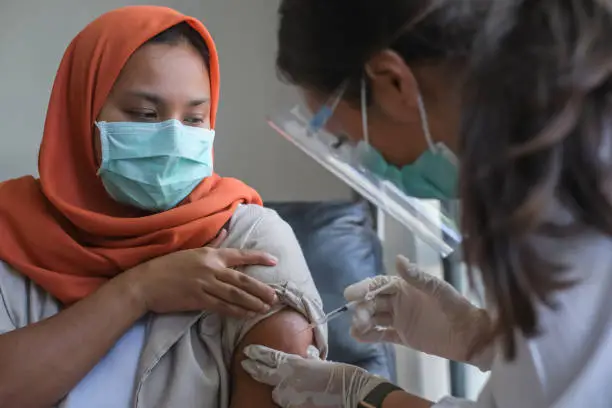Grants for kids are a pivotal facet of societal progress, dedicated to fostering the development, education, and wellbeing of children. These grants open the door to a plethora of opportunities, enabling a brighter, more enlightened future for kids from diverse backgrounds.
Why are Grants for Kids Important?
Grants for kids are essential in multiple dimensions. They are particularly pivotal in addressing economic disparities, enabling equal opportunities for children irrespective of their socio-economic backgrounds. These grants help in supporting children’s educational endeavors, health needs, extracurricular activities, and much more, paving the way for a more inclusive, equitable future.
Moreover, by leveraging these grants, several organizations and individuals are capable of implementing projects and programs that cater specifically to the needs of children. The impact is profound, extending to communities and society at large, as the empowered kids grow into responsible, aware, and enlightened adults.
How Do Grants for Kids Work?
Grants for kids usually emanate from government bodies, private foundations, and nonprofits. They are financial awards given to eligible entities or individuals to facilitate specific projects or needs, without the requirement of repayment.
Applying for a grant involves a thorough understanding of eligibility criteria, a well-drafted proposal illustrating the need, objective, and implementation plan of the intended project or need, and adherence to submission guidelines.
Practical Examples of Grants for Kids
1. After School Arts Program Grant
This grant is exemplary in its focus on providing children with opportunities to explore their artistic talents. Schools and nonprofits can apply to initiate art-based programs that cultivate creativity, resilience, and critical thinking among children. For instance, an elementary school in Denver used this grant to create a mural painting project, allowing kids to collaborate and express themselves through art.
2. Children’s Health and Welfare Grant
Focused on the holistic wellbeing of children, this grant supports projects and programs related to kids’ physical and mental health. For example, a community organization in Atlanta leveraged this grant to establish a mental wellness program aimed at providing counseling and support services to children dealing with trauma.
3. Educational Enhancement Grant
This grant aims to bolster the academic development of children. Schools, educational institutions, and nonprofits can utilize this grant to implement innovative learning methodologies, enhance curriculum, and provide additional learning resources to kids. A notable illustration is a library in Chicago that introduced a tech-enabled learning lab for children, empowering them with digital literacy skills.
In-Depth Exploration of Grants for Kids
1. Educational Grants
Educational grants are pivotal in shaping the academic journey of children. They provide essential resources and support, allowing kids to explore a wide range of subjects and skills. The National Science Foundation, for example, offers grants to encourage STEM learning among kids. Schools and organizations can apply for these grants to introduce science and technology-related projects that inspire curiosity and learning among children.
2. Arts and Culture Grants
These grants are instrumental in nurturing the creative potentials of kids. They support a myriad of artistic endeavors, including music, dance, painting, and theatre. The National Endowment for the Arts provides such grants, enabling organizations to initiate programs that expose kids to diverse art forms, enriching their cultural understanding and artistic expression.
3. Health and Nutrition Grants
Health and nutrition grants play a crucial role in safeguarding the wellbeing of children. These grants, like those provided by the Department of Health and Human Services, facilitate initiatives focusing on preventive healthcare, nutrition education, and wellness activities for kids. They assist in the creation of community-based health programs, enabling children to lead healthier lives.
Delving into the Process of Applying for Grants
Understanding the grant application process is crucial.
Here’s a step-by-step guide:
1. Identifying Suitable Grants
The first step involves meticulous research to identify grants that align with the intended purpose or project. Multiple online platforms provide extensive lists of available grants, detailing their objectives, eligibility criteria, and application procedures.
2. Understanding Eligibility
Once a suitable grant is identified, understanding its eligibility criteria is essential. Each grant has specific requirements that applicants must meet to be considered. This can include geographical location, type of organization, intended beneficiaries, and more.
3. Crafting a Compelling Proposal
Creating a well-structured, detailed proposal is paramount. The proposal should elucidate the need for the grant, the objectives of the project, the target beneficiaries, the implementation plan, and the expected outcomes. It should be concise, clear, and compelling, highlighting the potential impact of the grant.
4. Submission and Follow-Up
Adhering to the submission guidelines and timelines is vital. Once submitted, keeping track of the application and staying updated on its status is important. Some grants may require additional information or clarifications, so prompt responses are crucial.
Foundations that offer grants focusing on children and their programs
- The Caplan Foundation for Early Childhood:
- Focus: Early childhood welfare, education, and play.
- Details: This foundation supports innovative, creative projects and developmental programs for children aged 0-7.
- The National Endowment for the Arts:
- Focus: Artistic education and development.
- Details: Supports projects that aim to foster the artistic and creative development of children.
- Walmart Foundation:
- Focus: Education, community development.
- Details: Offers grants supporting programs designed to significantly impact children’s education and community well-being.
- The Spencer Foundation:
- Focus: Education and learning.
- Details: Provides funds for projects aimed at improving education and learning experiences for children.
- Save the Children:
- Focus: Child rights, relief, and development.
- Details: Provides grants aimed at promoting children’s rights and supporting children in developing countries.
- The Annie E. Casey Foundation:
- Focus: Disadvantaged children.
- Details: This foundation works to develop a brighter future for millions of children at risk of poor educational, economic, social, and health outcomes.
- Robert Wood Johnson Foundation:
- Focus: Health and healthcare.
- Details: Supports projects that promote healthy communities and the well-being of children.
- The W.K. Kellogg Foundation:
- Focus: Education, health, and community.
- Details: Supports children, families, and communities as they strengthen and create conditions that propel vulnerable children to achieve success.
- Michael & Susan Dell Foundation:
- Focus: Childhood health, education.
- Details: Focuses on transforming the lives of children living in urban poverty through improving their education, health, and family economic stability.
- The William T. Grant Foundation:
- Focus: Youth development.
- Details: Supports research to improve the lives of young people aged 5-25 in the United States.
- The Wallace Foundation:
- Focus: Education and learning.
- Details: Aims to foster improvements in learning and enrichment for disadvantaged children.
- The John Templeton Foundation:
- Focus: Human character development.
- Details: Funds research and outreach programs that aim to develop character virtues in children and adolescents.
- The David & Lucile Packard Foundation:
- Focus: Health and education.
- Details: Invests in innovative projects related to children’s health and education.
- The Henry Luce Foundation:
- Focus: Education, public policy.
- Details: Provides grants to improve the quality of education, and public policy development.
- Firelight Foundation:
- Focus: Childhood resilience.
- Details: Supports grassroots organizations that work with vulnerable children and families in Sub-Saharan Africa.
- Foundation for Child Development:
- Focus: Early childhood development.
- Details: Supports projects that focus on advancing the early learning and development of disadvantaged children.
- Conrad N. Hilton Foundation:
- Focus: Disadvantaged and vulnerable people.
- Details: Provides funds for interventions that improve the lives of disadvantaged and vulnerable children.
- McCormick Foundation:
- Focus: Education, civic health, and journalism.
- Details: Invests in educational, social, and economic projects benefiting children.
- The John D. and Catherine T. MacArthur Foundation:
- Focus: Digital media and learning.
- Details: Supports projects that explore how digital media affect the way young people learn, play, socialize, and participate in civic life.
- Charles Stewart Mott Foundation:
- Focus: Education and community impact.
- Details: Committed to supporting projects that empower communities to improve education and quality of life for their children.
It’s essential to verify the focus, eligibility criteria, and application process of each foundation directly from their official sources or websites for the most accurate and current information
Unearthing the Impact of Grants on Kids and Society
The transformative impact of grants on kids is multifaceted. These financial aids propel children towards achieving their fullest potentials, developing skills, and acquiring knowledge that remains instrumental throughout their lives.
Children, when supported and nurtured, evolve into responsible, compassionate, and enlightened individuals, contributing significantly to societal progress. They bring innovative solutions, fresh perspectives, and a sense of responsibility to the communities they belong to.
Conclusion
Grants for kids are powerful tools in fostering the holistic development of the younger generation. They are the catalysts that enable equal opportunities, ensuring that every child, regardless of their background, has the chance to learn, grow, and thrive.
Applying for these grants may seem daunting, but with careful research, understanding, and a well-crafted proposal, the possibilities are endless. The ripple effects of these grants are profound, reshaping not just individual lives but also the fabric of society, crafting a future that is more inclusive, equitable, and enlightened.
Remember, every child deserves the opportunity to shine, and grants for kids are the beacons of light guiding them towards a brighter, more promising tomorrow. In the long run, these efforts culminate in creating a society where every individual is valued, every talent is nurtured, and every dream has the potential to become a reality.




